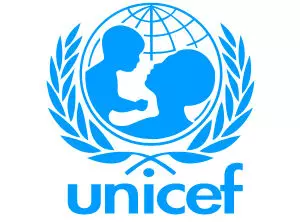
The United Nations International Children’s Emergency Fund (UNICEF) has pledged to support the Delta Government in the fight against malnutrition among women and youths in the state. The UNICEF Chief of Field Officer, Dr Tushar Rane, stated this in a virtual remark on Wednesday at a One-Day Inception meeting with Stakeholders for Scale Up of […]

The United Nations International Children’s Emergency Fund (UNICEF) has pledged to support the Delta Government in the fight against malnutrition among women and youths in the state.
The UNICEF Chief of Field Officer, Dr Tushar Rane, stated this in a virtual remark on Wednesday at a One-Day Inception meeting with Stakeholders for Scale Up of Adolescent Nutrition Programme to six Local Government Areas in Delta being organised by UNICEF in Asaba.
He lauded the Delta Government for approving the up scale of the adolescent nutritional programme from the initial three LGAs to six LGAs.
He noted that the gains of the pilot peogramme should be replicated in the new three LGAs, adding that addressing adolescent nutrition in the state would help to solve many challenges occasioned by poor feeding.
He noted that malnourished adolescent could not lead a normal life neither could he or she contribute meaningfully to the economic growth of the state and the nation at large.
According to Rane, UNICEF will continue to support the Delta Government to ensure that the programme it started in 2018 in Delta is scaled up to other LGAs to prevent acute malnutrition among the adolescents particularly the girl child.
On her part, Mrs Ngozi Onuora, UNICEF Programme Coordinator, noted that the UNICEF pilot programme in three LGAs of Isoko South, Ika North East and Ethiope West had outstanding impact on the adolescents who were placed on Iron-Folic Acid supplementation.
She said that the scale up to three new LGAs; Burutu, Ukwuani and Ethiope East LGAs, bringing the benefiting LGAs to six, was the right footing by the State Government in partnership with UNICEF.
She said that this programme was the first that targeted those aged 15-19 (adolescent), adding that this group of persons were ready to transit to adulthood but that their transition could be hindered by poor feeding habit.
Onuora said that the adolescent nutrition programme was targeted at anaemia reduction for the in and out of school children to ensure a healthier society.
She noted that aside from the administering the food supplement, women and youths are exposed to economic activities, farming and food preparations to ensure cash flow and adequate nutrition.
According to Onuora, Delta has a record of high percentage of malnourished adolescent and the essence of this supplemental programme is to help break the generational problem of malnourishment cycle in the society.
“In 2018, Katsina and Delta States rolled out strategy to intervene and in 2019, we were expected to scale up to five states and in 2020 we were expected to scale up to 10 states but here we are in Delta just scaling up from three to six LGAs.
“The goal of the programme is to reduce anaemia prevalence and other diseases associated with it by 2040 among the adolescents.
“Available statistics has shown that only about 19 per cent of adolescents eat healthy food while the remaining 81 per cent are malnourished in Nigeria”.
In her opening address, Dr Isioma Okobah, Chairman, Delta Primary Health Care Development Agency, who doubled as Chairperson for the occasion, thanked UNICEF for the support, adding that the intervention was critical to addressing the challenge of malnutrition among the adolescents.
“His Excellency, Gov. Ifeanyi Okowa is happy with the partnership as the programme will help the children to build resistance to diseases and it is in line with the state government agenda of health for all.
“The adding of three new LGAs is a welcome development, we are hoping that UNICEF will take the programme to all the 25 LGAs in Delta,” Okobah said.
Supreme reports that representative from the World Health Organisations, the Federal Ministry of Health, State Ministries of Health, Education, Royal Fathers among others called for more advocacy to address issues of poor feeding in the country.
They blamed insecurity, perennial flooding and illiteracy for the increasing cases of anaemia arising from poor feeding habits among adolescents in Nigeria.
They noted that it would be difficult to ensure food security in the wake of insecurity and flooding because the two phenomena remain a threat to food production.
They also said that the lack of requisite knowledge of what and how to produce and prepare food that contain right mineral elements (iron) remains a mirage to many households in the country, hence the need for supplemental nutrition and education.
They also said that the consequences were sever for adolescents who lack the requisite amount of iron, particularly the girl child, could become anaemic, malnourished, exposed to diseases and become stunted in growth.




